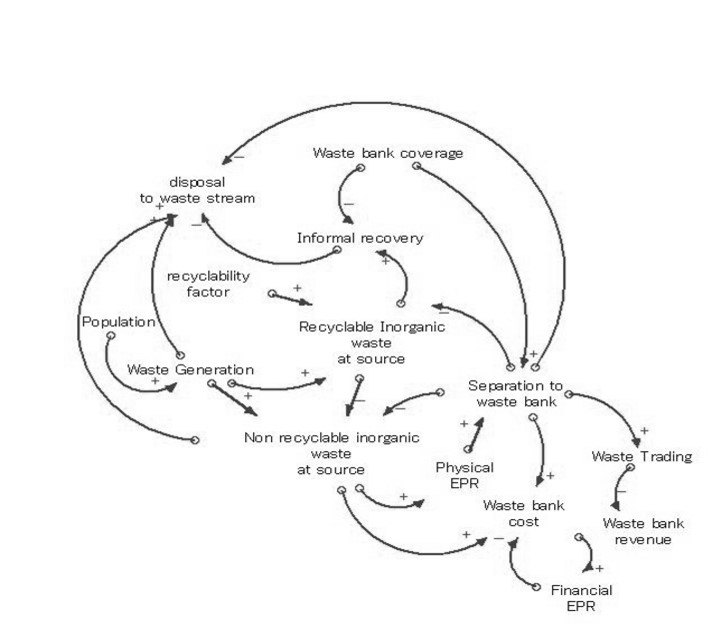Current Issues and Situation of Producer Responsibility in Waste Management in Indonesia
Main Article Content
Abstract
Producer responsibility for wastes has been encouraged in Indonesia since 2008. The Ministry of Environment of the Republic of Indonesia also promoted the reduce, reuse, and recycle (3R) concept using the community-based approach of waste banks integrated with the extended producer responsibility (EPR) concept. However, related research and implementation are still limited. This study aims to identify the challenges of fulfilling producer responsibility in waste management and determine whether the integration concept could generate outcomes expected from the EPR concept. A semi-structured interview survey of several stakeholders from the government, industrial, and waste management sectors was conducted and the data generated was used to simulate an integration scheme using a system dynamics approach. Secondary data and information from Bandung municipality were used as input for the simulation. The interview survey found that the concerns and issues of fulfilling producer responsibility in waste management include lack of awareness, unavailability of clear guidelines, and the limited capacity of the current recycling sector. The results of the simulation suggested that if the integration scheme is applied, each business entity might bear the responsibility of IDR 29.4 million per year and 14.7 tons of waste per year for the scope of four sectors and IDR 34.1 million per year and 17 tons of waste per year for the scope of two sectors.
Article Details
Published articles are under the copyright of the Environment and Natural Resources Journal effective when the article is accepted for publication thus granting Environment and Natural Resources Journal all rights for the work so that both parties may be protected from the consequences of unauthorized use. Partially or totally publication of an article elsewhere is possible only after the consent from the editors.

